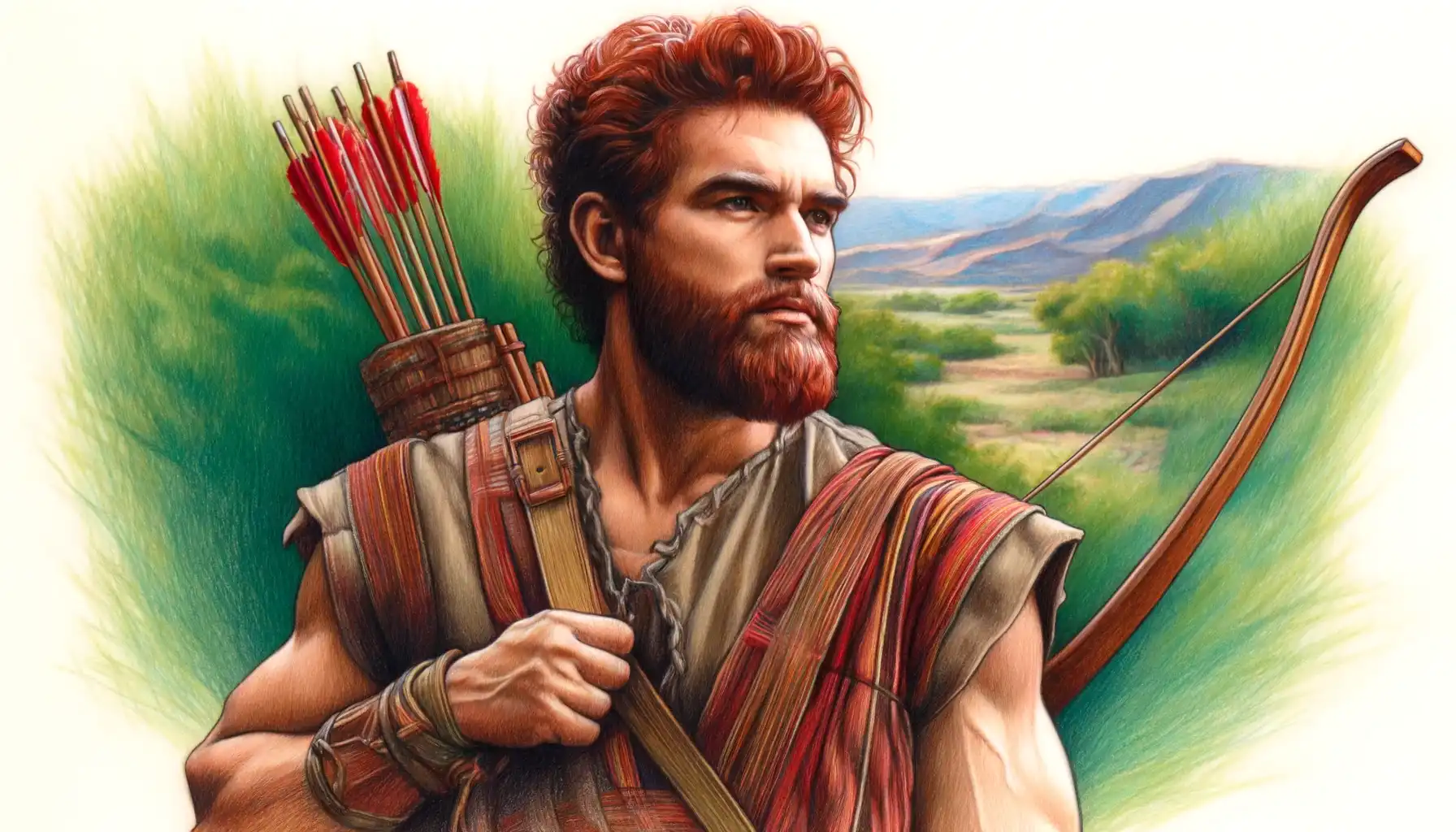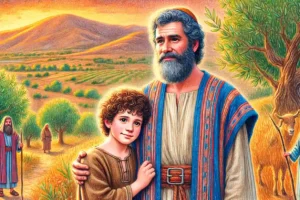
Esau, Jacob’s Elder Twin Brother
Esau, a significant figure in the Book of Genesis, is known as Jacob’s elder twin brother. His decisions and their repercussions play a crucial role in the narrative of the patriarchs of Israel.
- Birth and Significance – Esau was the firstborn twin son of Isaac and Rebekah, which traditionally meant he was entitled to the birthright and blessings that come with being the eldest (Genesis 25:25).
- Appearance and Occupation – Esau was known for his red and hairy appearance at birth. He grew up to be a skilled hunter and was favored by his father, Isaac, because of his prowess in the field (Genesis 25:28).
- Selling His Birthright – In a moment of weakness, Esau traded his birthright to Jacob for a bowl of red lentil stew. This impulsive decision was made when he was famished and devalued his birthright’s long-term significance for immediate gratification (Genesis 25:29-34).
- Loss of the Fatherly Blessing – Later, Esau was deceived by Jacob and his mother Rebekah, which led to Jacob receiving the blessing from Isaac that was intended for Esau. This act of deception greatly strained the brothers’ relationship (Genesis 27).
- Esau’s Reaction and Reconciliation – Initially, Esau bore a grudge against Jacob and planned to kill him, prompting Jacob to flee. Years later, however, the brothers reconciled in a heartfelt encounter that healed old wounds (Genesis 33).
- Descendants and Legacy – Esau became the progenitor of the Edomites. The narrative details his lineage and his adaptations to the land of Seir, highlighting his success and establishment despite the loss of the birthright and blessing (Genesis 36).
Contextual Background
Esau, as introduced in Genesis, is the elder twin of Jacob, sons of Isaac and Rebekah. His story is pivotal in the narrative of the Biblical patriarchs, illustrating themes of rivalry, reconciliation, and the complexities of familial relationships.
Theological Insights
- Birthright and Its Implications
- As the firstborn son, Esau was entitled to the birthright, which conferred not only a double portion of the familial inheritance but also leadership of the family and spiritual blessings. His decision to sell his birthright to Jacob for a meal (Genesis 25:29-34) highlights a theme prevalent in Biblical narratives: the human tendency to prioritize immediate physical desires over long-term spiritual rewards.
- Character and Lifestyle
- Esau is depicted as a skillful hunter, a man of the outdoors, favored by his father, Isaac. In contrast, his brother Jacob is characterized as a quiet man dwelling in tents. This contrast extends to their spiritual dispositions, with Esau’s impulsive nature leading to significant spiritual and material losses.
- Deception and Loss of Blessing
- The deception by Jacob and Rebekah to obtain Isaac’s blessing meant for Esau (Genesis 27) is a critical event. This not only affects Esau’s destiny but also serves as a divine instrument in the unfolding of God’s plans for Israel. It raises questions about the use of deceit in achieving prophesied outcomes and the role of divine providence in the lives of the patriarchs.
- Grudge, Threat, and Flight
- Esau’s reaction to losing his blessing—to kill Jacob—sets off a chain of events leading to Jacob’s flight to Haran. This aspect of the narrative underscores the deep emotional and existential impact of the lost blessing and birthright, highlighting themes of anger, betrayal, and survival.
- Reconciliation and Forgiveness
- One of the most powerful moments in Esau’s life is his reconciliation with Jacob (Genesis 33). Despite the deception and years of separation, Esau forgives Jacob, demonstrating a significant moral and emotional growth. This reconciliation is marked by a poignant encounter where Esau runs to meet Jacob, embraces him, and both weep, underscoring the biblical themes of forgiveness and restoration.
- Legacy and Descendants
- Esau’s lineage, as described in Genesis 36, outlines his role as the progenitor of the Edomites, indicating that despite his losses, Esau achieves a measure of success and establishes a significant historical and regional presence.
Cultural and Historical Impact
- Symbolic Interpretations: Esau has often been symbolically associated with the unspiritual man who squanders his spiritual heritage. His story serves as a cautionary tale about the consequences of undervaluing spiritual blessings.
- Literary and Artistic Influence: The narrative of Esau and Jacob has inspired numerous works of art and literature, exploring themes of rivalry, loss, and reconciliation.
- Theological Discussions: Esau’s story is often discussed in theological contexts concerning God’s sovereignty, human free will, and the complexities of divine election and reprobation.
Conclusion
Esau’s life, richly documented in the Book of Genesis, provides profound insights into human nature, divine justice, and the power of forgiveness. His story is integral to understanding the development of the Biblical narrative and offers enduring lessons on the consequences of our choices and the transformative power of reconciliation.
Tag:Bible, birthright, Edomites, Esau, Genesis, inheritance, Jacob, Old Testament, Patriarchs, reconciliation



